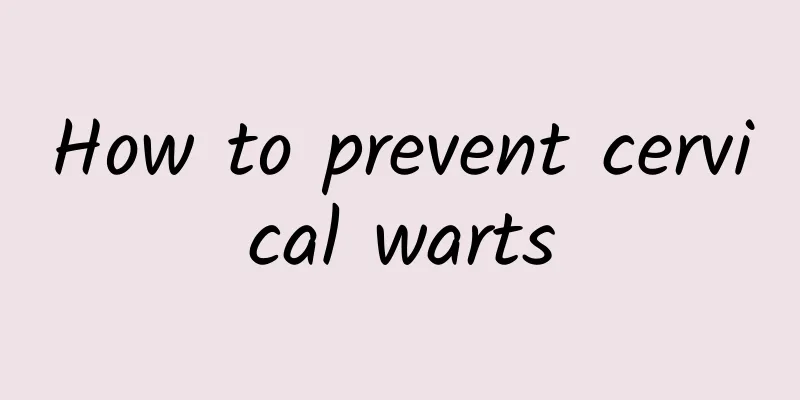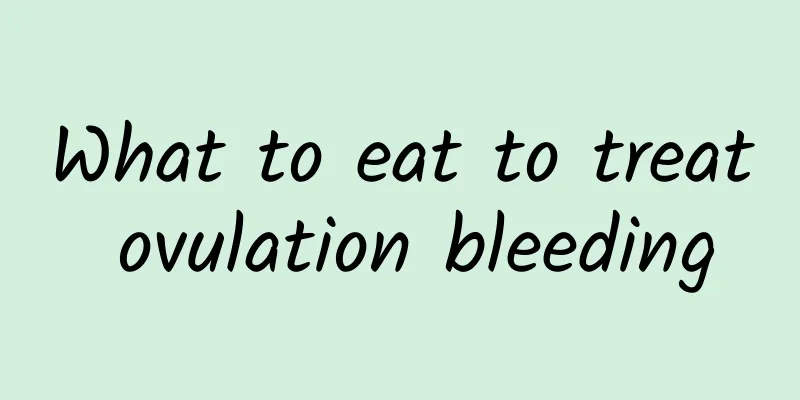How to prevent cervical warts

|
Cervical warts can be prevented through various efforts and preventive measures. Theoretically, the best way to prevent cervical warts and HPV infection is to avoid sexual contact with people with cervical warts or HPV infection, such as sexual intercourse. In the actual process of preventing cervical warts, pay attention to the following points. 1. Vigorously carry out publicity and education work This work is a work for the whole society. The publicity and education work should reach all levels of society, especially the 15-50 age group. Both men and women should be made aware of the relevant knowledge of STDs, the transmission routes and characteristics of STDs, and the harm caused by STDs to human physical and mental health. Through publicity, the public's awareness of STDs can be improved, people's sense of responsibility to their families and society can be enhanced, and people's awareness of self-protection can be enhanced, so that everyone can keep themselves clean and reduce the chances of infection with STDs such as cervical warts. 2. Reduce the chance of infection and avoid high-risk sexual behavior Patients with cervical warts who have sexual partners should be regularly checked for cervical warts or HPV infection. Because most reinfections of cervical warts are related to cervical warts and HPV infection in their sexual partners, sexual contact with them should be avoided to reduce the chance of reinfection after treatment. People should be made aware of the safety of casual sex and change their sexual behavior to reduce the risk of cervical warts. 3. Early detection, early diagnosis, and early treatment For those who have a history of contact with sexually transmitted diseases, they should always pay attention to observe whether there are any lesions in the external genitalia. At the same time, they can see a sexually transmitted disease specialist and conduct relevant examinations to ensure early detection, early diagnosis and early treatment. 4. Patients with cervical warts should respect their right to health. After suffering from cervical warts, you should tell your family members or other people in your collective life about your illness so that they can take appropriate precautions. Before the cervical warts are cured, you should be careful to avoid transmitting the disease to others. Do not have sexual intercourse, do not bathe or swim in public baths (swimming pools), and do not abuse other people's belongings. Even if the cervical warts no longer exist after treatment, you should still do this for a considerable period of time, at least within half a year. If there are no cervical warts, it is recommended to use condoms during sexual intercourse to reduce the chance of cervical warts and HPV transmission. |
<<: How to prevent cervical warts in family members
>>: What should I pay attention to prevent cervical warts?
Recommend
What can't you eat if you have adenomyosis?
Patients with adenomyosis should avoid high-fat f...
To prevent dysmenorrhea, you should pay attention to some dietary taboos
Many women confuse dysmenorrhea with normal menst...
How to take care of uterine effusion in daily life
Nowadays, the incidence of gynecological diseases...
Tell you the harm of cervical hypertrophy to the human body
Cervical hypertrophy is a common disease, but som...
What are the traditional Chinese medicine treatments for chronic chocolate cysts?
Chocolate cyst is not a tumor as we understand it...
Can I have an abortion if I am six months pregnant?
In the case of an unexpected pregnancy, most peop...
What are the causes of miscarriage?
Many female friends have had the sad experience o...
What are the specific causes of cervical hypertrophy?
Nowadays, many married women suffer from cervical...
Patients with ectopic pregnancy may also experience amenorrhea or abdominal pain
Patients with ectopic pregnancy may also experien...
Interval walking is more powerful for exercising thighs and improving muscle endurance
Are you still doing the same old normal walking? ...
It is important to prevent vaginitis in spring
Many women tend to ignore the fact that spring is...
The main care measures for adnexitis in daily life
Among the many gynecological diseases, some are a...
What are the more effective tests for hyperprolactinemia?
Hyperprolactinemia refers to a syndrome caused by...
Why does Bartholinitis get transmitted?
Why do people get Bartholinitis? Bartholinitis is...
Don’t miss the top 8 events hotly discussed by netizens at the 2024 Paris Olympics! Badminton: Tai Tzu-ying and Lin-Yang pair expected to perform
The 2024 Paris Olympics officially kicked off a f...









